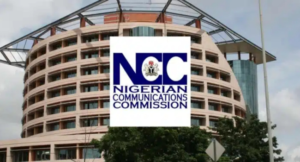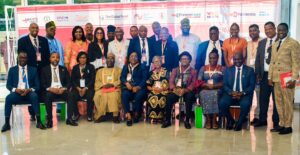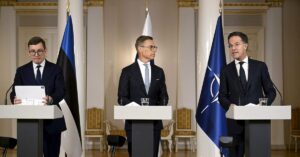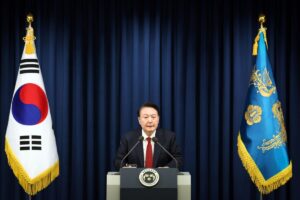The United States (U.S.) has warned against violence during the 2019 general elections in Nigeria, saying it will “remain intensely focused” on the elections in the coming months.
U.S. Assistant Secretary, Bureau of African Affairs, Tibor Nagy, Jr., stated this in his testimony to the U.S. House of Representatives, Sub-Committee on Africa, Global Health, Global Human Rights, and International Organisations.
The title of the hearing was ‘Nigeria at a Crossroad: The Upcoming Elections’.
Nagy shared many of the areas of concern that the legislators had voiced assuring that the U.S. was monitoring and messaging both publicly and privately – to mitigate a few key areas of risk that could jeopardise a free and fair process.
Some of the concerns included potential attacks on the legitimacy of INEC and the electoral process for political gain, intimidation and partisanship by security forces.
Others were heightened insecurity, terrorist attacks on elections institutions, or violence toward voters, observers, or electoral officials and an inability of large numbers of internally displaced persons or persons with disabilities to vote.
Voter suppression, the use of armed gangs for voter intimidation, and other drivers of electoral violence, including a lack of official condemnation of hate speech and disinformation; and wide-spread vote buying that challenges the integrity of the electoral process, were also raised.
“On November 18, the start of official campaigning, our Mission in Abuja released a statement with 25 like-minded missions to express our desire to see free, fair, transparent, and peaceful elections, specifically naming many of these concerns.
“I can assure you we will be watching closely for instigators of violence or those attempting to undermine the democratic process. Many of you have expressed particular concern about violence around these elections.
“I can tell you from my impressions during my travels and my previous service in Nigeria that I fear there will be some violence around these elections, as has been the case with previous elections.
“I do not anticipate large-scale nation-wide conflict, but rather localised violence. We are already seeing increased tensions and polarization as the election approaches.
“We assess that politicians are turning to narratives of identity politics in an attempt to improve their popularity, with potentially serious consequences for national unity.
“However, Nigeria’s political system and society have weathered such tensions before.”
Nagy underscored that the U.S. government took the risk of any loss of human life extremely seriously, adding, preventing electoral violence was one of the U.S. three main objectives for its diplomacy and programmes.
He said: “When I was in Nigeria, I asked officials from both major parties to sign pledges that their candidates would conduct peaceful campaigns, and both major candidates have now signed a peace pledge.
“In assessing potential ‘hot spots’ for violence, we look at places that are historically volatile around elections such as Rivers and Borno states.
“We look at states that are currently tense, especially if state-level politics are contentious like those in Benue, Plateau, as well as those in high-stakes locations with large populations such as Kano”.
Nagy said the U.S. regularly engaged with civil society organisations working in those ‘hotspots’ and support their peace building efforts.
According to him, the U.S. Agency for International Development programmes and the country’s public diplomacy campaigns also support peace campaigns across Nigeria, such as #VoteNotFight.
The U.S. envoy said through the Young African Leaders Initiative Network Nigeria campaign, Nigerians have made over 10,000 pledges to boost voter participation, reject violence, and vote with integrity.
“As I said in a speech in Nigeria, only the Nigerian people can determine lasting solutions and a path forward toward peace and stability.
“2019 will be a significant year for Nigerian democracy – it has been 20 years since the country returned to democratic rule and this election’s youngest voters have never known a Nigeria without democracy.
“The upcoming elections provide Nigerians an opportunity to shape their country and solidify its place as a democratic leader in Africa,” Nagy concluded.
The federal government had many times denounced hate speech and at a time wanted to declare it act against the state to act as deterrent.
Also early in the week, the major political actors committed to a violence-free polls by signing a peace accord in Abuja as was done in the 2015 general elections which the then incumbent President Goodluck Jonathan of PDP lost to Muhammadu Buhari of APC.




